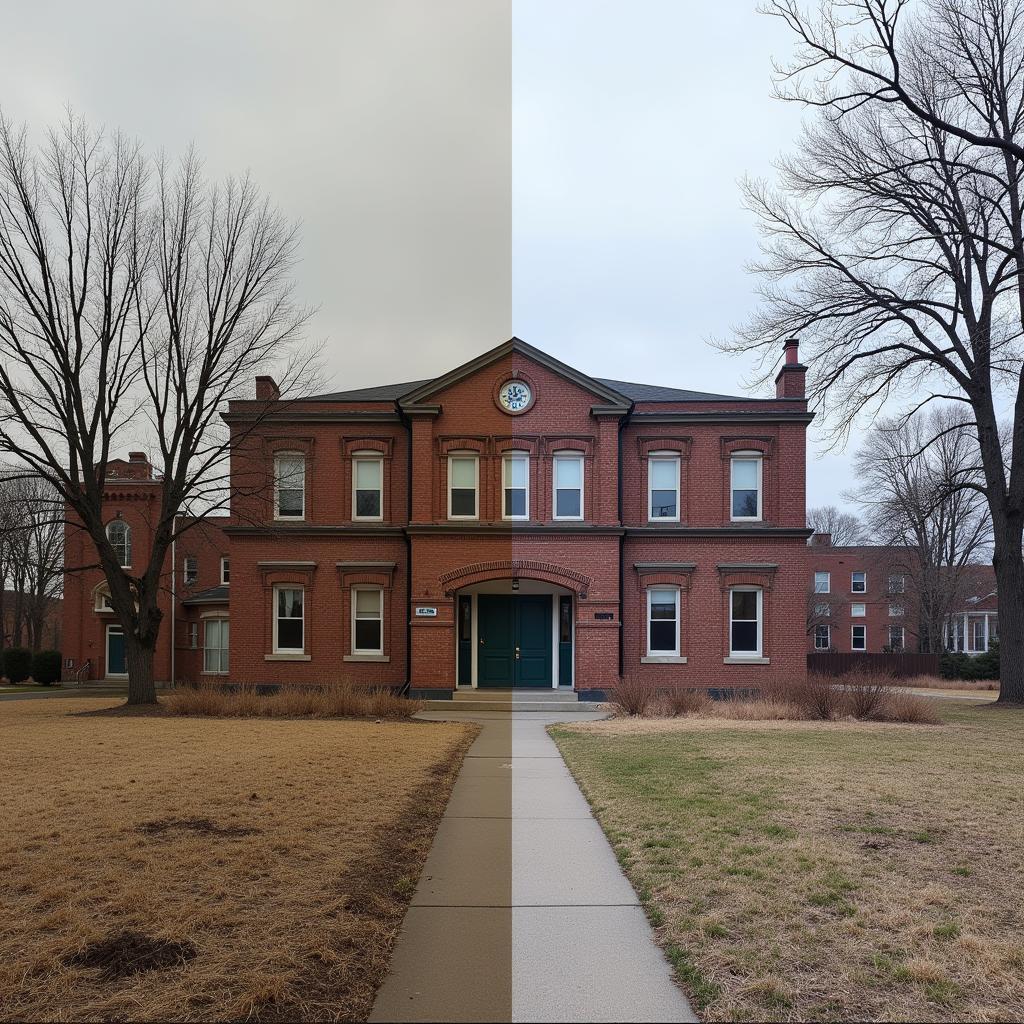Friern Hospital, once a prominent mental health institution in North London, holds a significant place in the history of psychiatric care. This article delves into its past, exploring its evolution, impact, and legacy.
From Friern Barnet Asylum to Friern Hospital: A Journey Through Time
Friern Hospital, originally known as Friern Barnet Asylum, opened its doors in 1851. Its establishment marked a shift towards a more humane approach to mental health treatment, moving away from the often harsh conditions of earlier institutions.
The hospital’s design, influenced by the principles of moral treatment, emphasized spacious grounds, fresh air, and occupational therapy. These elements aimed to promote healing and recovery in a calming environment, a stark contrast to the confinement and restraint common in previous asylums. Over time, Friern Hospital underwent significant changes, reflecting the evolving understanding and approaches to mental health care.
The Evolution of Treatment at Friern Hospital
As medical knowledge progressed, so too did the treatments offered at Friern Hospital. The early years saw a focus on moral therapy, but with advancements in psychiatry, new therapies and medications were introduced. The implementation of these new approaches often came with both benefits and challenges, shaping the lives of the patients within its walls. From the introduction of electroconvulsive therapy to the development of antipsychotic medications, Friern Hospital became a site where the latest psychiatric treatments were explored and implemented.
The Legacy of Friern Hospital and Its Impact on Mental Health Care
Friern Hospital closed its doors in 1993, marking the end of an era. Its closure was part of a broader movement towards deinstitutionalization, prioritizing community-based care over long-term hospitalization. While the hospital’s physical presence is gone, its legacy continues to influence mental health care.  Images depicting the closure of Friern Hospital and its repurposing, along with a visual representation of its ongoing legacy in mental health care. Its history provides valuable insights into the evolution of mental health treatment and serves as a reminder of the importance of compassionate and individualized care.
Images depicting the closure of Friern Hospital and its repurposing, along with a visual representation of its ongoing legacy in mental health care. Its history provides valuable insights into the evolution of mental health treatment and serves as a reminder of the importance of compassionate and individualized care.
Friern Hospital: Addressing Common Questions
What kind of hospital was Friern Hospital? Friern Hospital was a psychiatric hospital specializing in the care of individuals with mental illnesses.
When did Friern Hospital open and close? Friern Hospital opened in 1851 and closed in 1993.
What is Friern Hospital known for? Friern Hospital is known for its historical significance in the development of mental health care, transitioning from moral treatment to modern psychiatric approaches.
Conclusion
Friern Hospital stands as a significant landmark in the history of mental health care. From its inception as Friern Barnet Asylum to its eventual closure, the hospital witnessed and participated in the transformation of psychiatric treatment. Its story offers valuable lessons for the future of mental health care, emphasizing the enduring need for humane, effective, and community-integrated approaches.
FAQ
- Was Friern Hospital ever known by any other names? Yes, it was originally called Friern Barnet Asylum.
- What type of patients did Friern Hospital treat? It primarily treated patients with various mental illnesses.
- Where was Friern Hospital located? It was located in North London.
- Why did Friern Hospital close? It closed as part of a move towards community-based mental health care.
- What is the site of Friern Hospital used for today? It has been redeveloped into residential housing.
- Are there any records or archives related to Friern Hospital? Yes, various archives and historical societies hold records related to the hospital.
- Where can I find more information about the history of Friern Hospital? Information can be found in historical archives, local libraries, and online resources.
For further assistance, please contact us at Phone Number: 02437655121, Email: [email protected], or visit us at 298 Cau Dien Street, Minh Khai, Bac Tu Liem, Hanoi, Vietnam. We have a 24/7 customer service team.